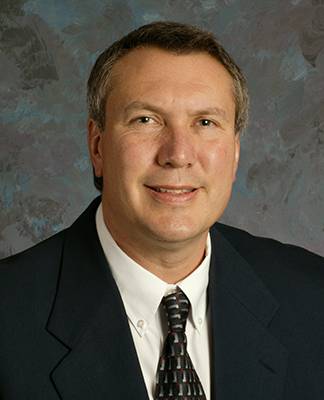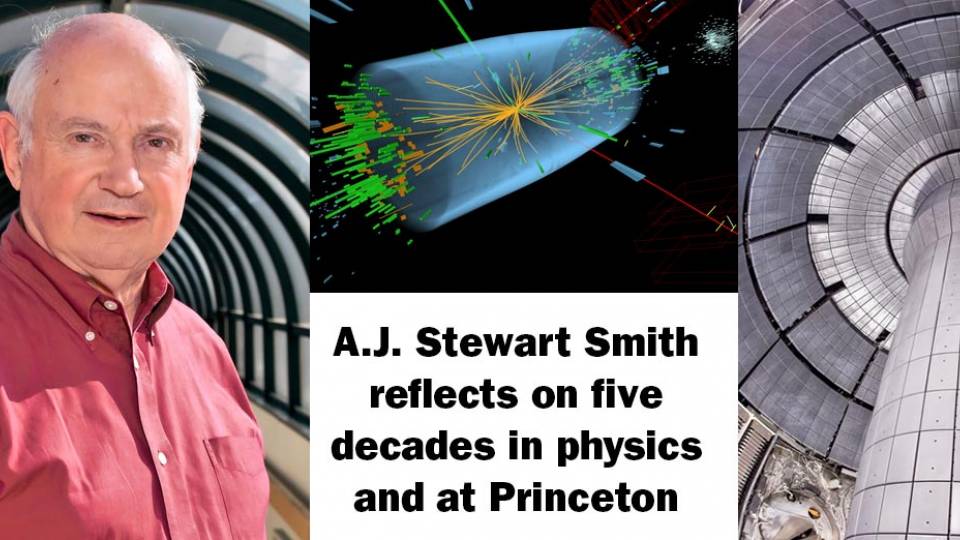David McComas, an executive leader in managing various complex technical projects and programs, has been named vice president for the U.S. Department of Energy's Princeton Plasma Physics Laboratory (PPPL). PPPL is the nation's leading center for the exploration of plasma science and magnetic fusion energy. McComas also has been appointed professor of astrophysical sciences at Princeton.
McComas, the assistant vice president of space science and engineering at the Southwest Research Institute (SwRI), will begin his new role on April 4. He succeeds A.J. Stewart Smith, Princeton's Class of 1909 Professor of Physics and former dean for research who has served as vice president for PPPL since 2013 and is retiring in April 2017 after a sabbatical.
The vice president for PPPL serves as the University's primary liaison with the Department of Energy (DOE) and is responsible for the management and operation of the laboratory. Reporting to Provost David S. Lee, McComas also will identify and support opportunities for collaborative research and other activities with the main Princeton campus.
"I am absolutely delighted that Dave will be joining us at Princeton," said Princeton Provost David S. Lee. "He will bring years of deep experience and a commitment to the missions of the lab and the University that will serve both extremely well. He is a distinguished scientist with an outstanding record of research, while also having a demonstrated record of successful leadership at both SwRI and Los Alamos National Laboratory."
"I am thrilled and honored to be joining all of the outstanding people at Princeton University and PPPL," McComas said. "The work of the lab is incredibly important to the nation and the world both scientifically and in helping to lead to what will surely be humanity's ultimate energy source."
McComas, who has worked at SwRI since 2000, helped lead the technical success and growth of the Space Science and Engineering Division.
He has been principal investigator (PI) for several space missions and instruments, with overall responsibility for all aspects of these projects, including vision and strategy, formation of high-performance teams, providing fiscal and technical management, and ensuring scientific and technical excellence.
An example of McComas' leadership is serving as PI for NASA's Interstellar Boundary Explorer (IBEX) mission, which was launched under budget in 2008. IBEX has led to numerous major discoveries and generated more than 230 refereed papers and over 4,000 citations.
McComas, who earned a bachelor's degree in physics from the Massachusetts Institute of Technology and a Ph.D. in geophysics and space physics from the University of California-Los Angeles, continues to be engaged in the academic setting. In 2004, he was a key founder of a joint SwRI and University of Texas-San Antonio M.S./Ph.D. graduate program in physics, where he is an adjoint full professor in physics and astronomy.
After earning his B.S. in 1980, McComas joined Los Alamos National Laboratory (LANL) and held a number of roles over 20 years. From starting as a technical staff member, he completed his Ph.D. and worked his way up to be founding director of the Center for Space Science and Exploration, responsible for leading all civilian space programs at Los Alamos.
Throughout his time at LANL, he served a range of customers including the DOE, NASA, Air Force and industry. He also served on the Nonproliferation and International Security Leadership Council.
McComas' scientific work includes numerous patents for mass spectrometry and other instruments. He has published more than 500 scientific and technical papers that have received over 22,000 citations.
McComas has served on numerous committees focused on developing programs in science, technology and engineering. In 2015, he completed a two-year term on the NASA Advisory Council (NAC). He also served as chair of the NAC Science Committee.
His many honors include an Exceptional Public Service Medal from NASA in 2015 and the Space Science Award from the International Committee on Space Research in 2014. He is a fellow of the American Physical Society, the American Association for the Advancement of Science and the American Geophysical Union.
McComas also serves on the board of directors of the nonprofit Dyslexic Advantage.
PPPL, on Princeton University's Forrestal Campus in Plainsboro, New Jersey, is devoted to creating new knowledge about the physics of plasmas — ultra-hot, charged gases — and to developing practical solutions for the creation of fusion energy. Results of PPPL research have ranged from a portable nuclear materials detector for anti-terrorist use to universally employed computer codes for analyzing and predicting the outcome of fusion experiments. The laboratory is managed by the University for the U.S. Department of Energy's Office of Science, which is the largest single supporter of basic research in the physical sciences in the United States, and is working to address some of the most pressing challenges of our time.





